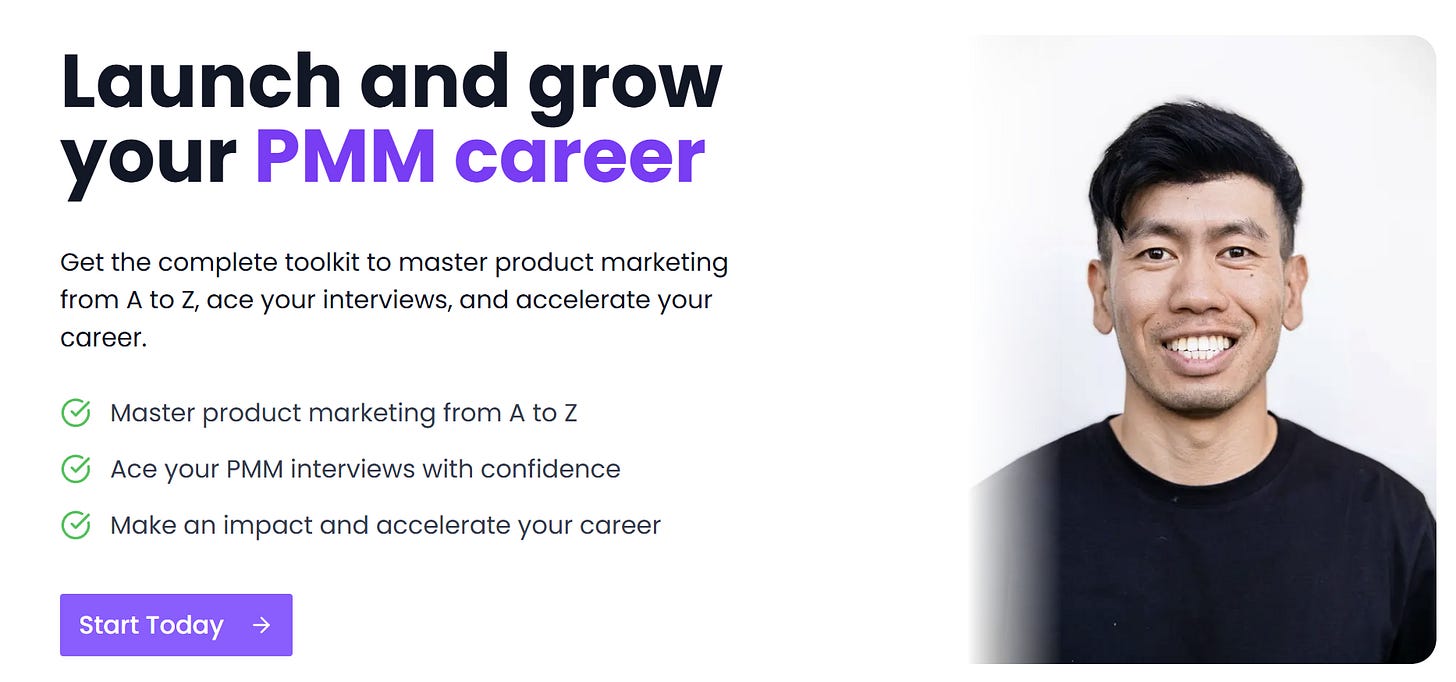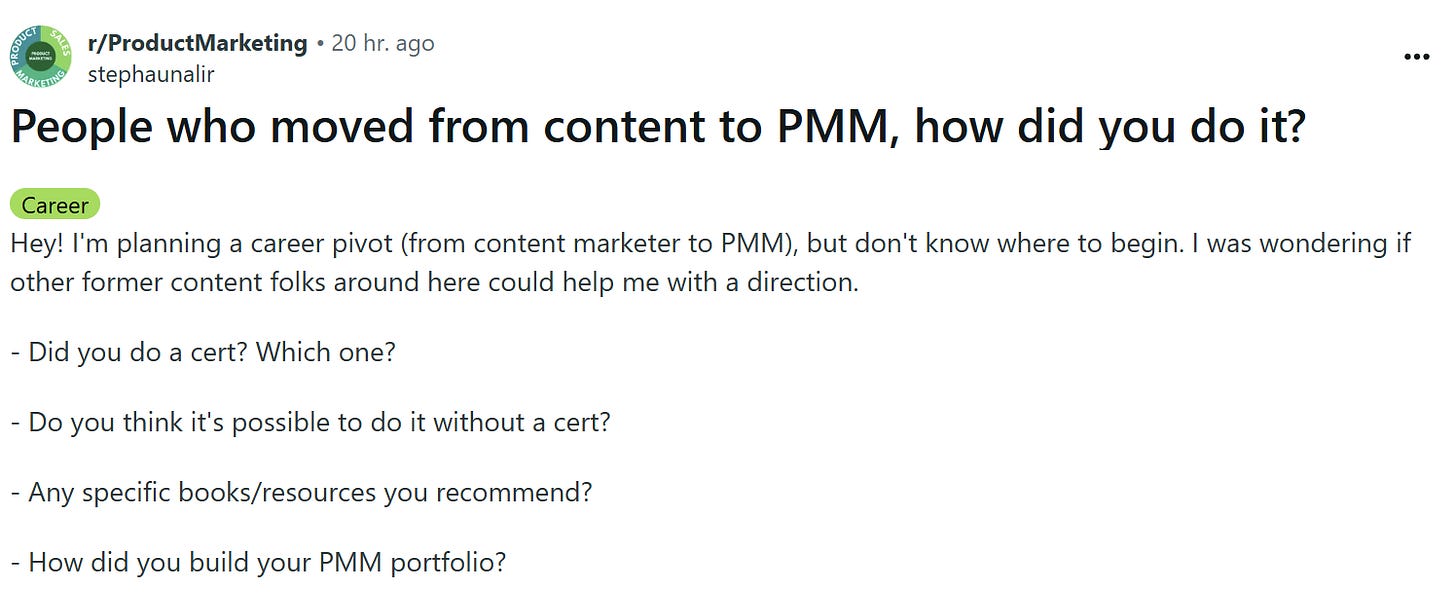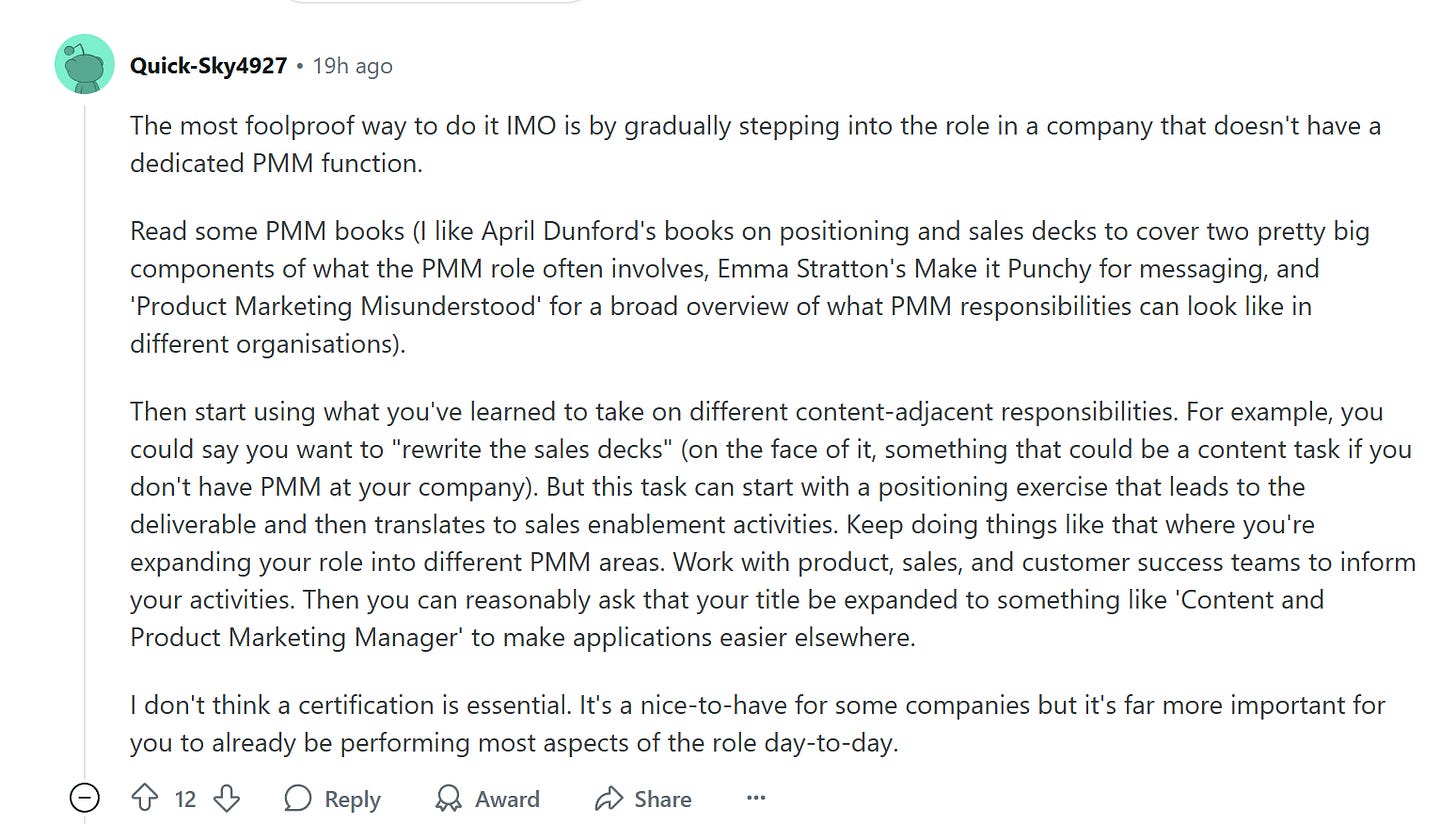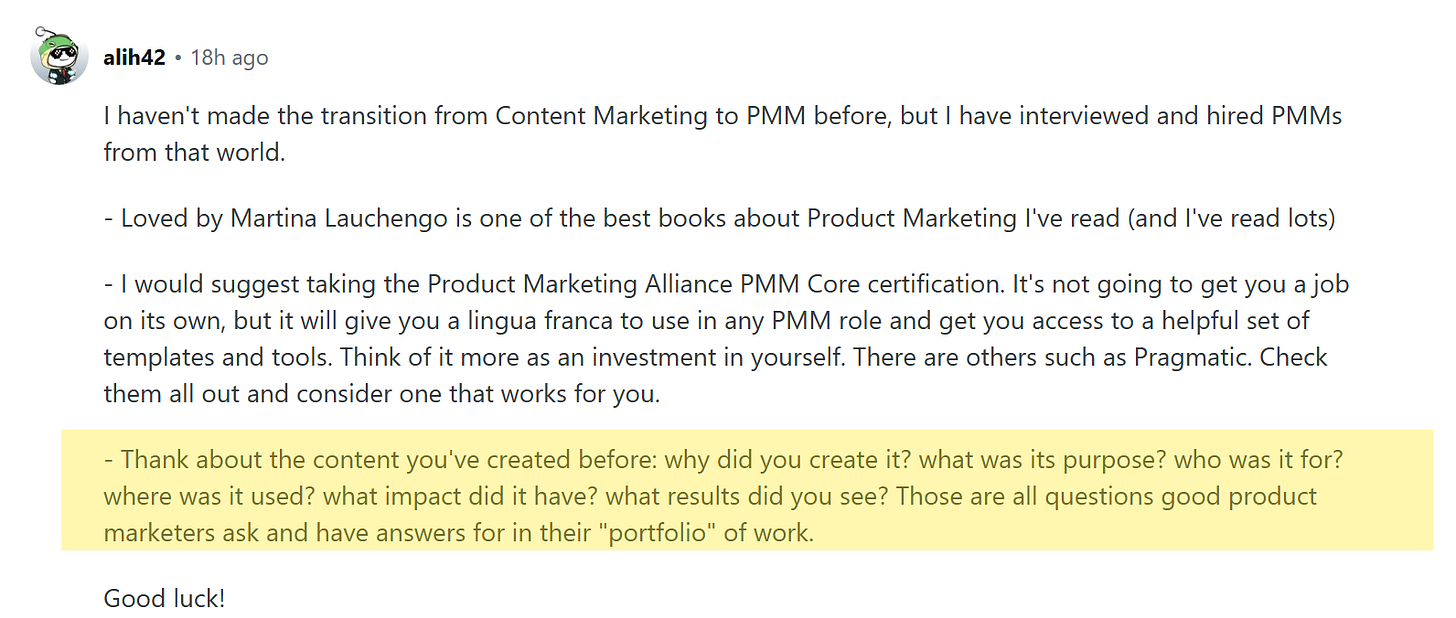The content marketer’s path to PMM: Advice from Henry Wang + Reddit
Earlier this week, I sat down with Henry Wang, founder of Product Marketing School, to talk about how content marketers can pivot to a PMM career.
The positioning “classic” by Trout and Ries was hyped as my golden ticket to a PMM framework. Instead, it left me frustrated and looking elsewhere for real guidance. I booked a call with Henry Wang, former lead PMM at Google and founder of PMM School.

We had a nice 15-minute chat that shed some light and answered some questions. But because we were crunched for time, we couldn’t get into great detail, so I asked for further clarification on the r/ProductMarketing subreddit to have a complete picture of this career path.
Here’s the lowdown.
TL;DR:
Learn the PMM fundamentals: personas, positioning, go-to-market.
Start building a portfolio by reframing current marketing work in the language of PMM.
Prioritize professional, structured experience over volunteer or freelance work.
Courses provide structure; self-study is possible but harder.
My questions for Henry were focused on the content marketer to PMM career path, but I’m sure the answers I got could help other PMM enthusiasts on their own career pivot journey.
What knowledge and skills does a content marketer need to break into product marketing?
After I gave Henry some context on my professional background, current position, and upskilling goals, we got into what I need to do as a content manager to become a PMM. He broke the learning path into three stages.
1. Knowledge: Building a strong PMM foundation
“First, you want to build up a strong foundation in product marketing as a whole by understanding primarily how to build customer personas, create positioning and messaging for a product, and develop and optimize a go-to-market plan to drive adoption.
I think those are the three key pillars to product marketing work.”
This was really insightful, as I completely overlooked customer personas in my self-learning curriculum. It’s now top of the list, thanks to Henry.
2. Expertise: Taking on PMM-adjacent work at your current company
“Step two is to try to find product marketing work to do at your current company. If your current company has any product launches that they need help with, or sales enablement that they need help with, try to find opportunities there, you know, whether that be a side project or just volunteering your skill set to help out. This way, you can actually build up the PMM experience.”
Reddit echoed Henry’s advice. A common recommendation that appears in all the replies to my post is to try and find PMM responsibilities at the company you work at. It’s like a change in your approach to content.
My idea for building a PMM portfolio was to volunteer on r/SaaS or other similar subreddits and write some case studies afterward. I already volunteered to do PMM work for hot.page—an amazing “yes code” web builder that gives designers and tech enthusiasts full creative freedom. But Henry thinks this is not a particularly valuable experience an aspiring PMM could include in a portfolio.
“In terms of offering your services on Reddit, I think that's going to be a hit or a miss. I think interviewers generally want to see you doing it in a more traditional professional setting, versus like, hey, you just did some three-month work. I'm not sure how strong that's going to resonate.”
Although I agree, I’m going to do this anyway. Not for a portfolio, but just for lending a hand to a bootstrapped startup with a product I love.
3. Transferable skills: Build a strong case
“And then finally, the third is just to have a strong story of how well your experience in content marketing translates over to product marketing.
Instead of saying you’re doing content marketing to drive awareness and leads, you can say, you’re putting together and executing a go-to-market plan to acquire customers.
Exact same thing, but different POV.”
Redditors recommended a similar approach: to reframe how you talk about your day-to-day content responsibilities, take on PMM-adjacent side quests at work, and basically create the space for yourself to learn and build experience.
Can you actually gain the necessary knowledge without a PMM certification?
My goal is to spend as little as possible on courses. I prefer exploring different perspectives from thought leaders in articles, books, and dedicated communities instead of following a structured curriculum.
But since I’m new to this whole PMM shtick, I decided to ask Henry if he thinks it’s possible to have a good grasp of the PMM foundations without a certification. As I expected, he said:
“Yeah, it's possible, but it will just be harder. It's not going to be linear, right? You’ll have to pick out bits and parts from each resource and try to put that together. Whereas the course, I think, is going to give you more structure and more of a linear path.”
The Reddit replies I got regarding certifications surprised me. People didn’t find the knowledge shared in these programs to be life-changing, “although solid”. But they got more from joining the PMM Slack communities they got included in after enrolling in a course.
A little bonus: PMM books recommended by Redditors
For those like me who are not so eager to do a certification, books are your best bet. Here are all the books recommended in the Reddit replies:
Obviously Awesome (and/or) Sales Pitch – April Dunford
Make It Punchy – Emma Stratton
Product Marketing Misunderstood – Richard King & Bryony Pearce
Loved: How to Rethink Marketing for Tech Products – Martina Lauchengco
The bottom line: If you’re a content marketer eyeing PMM, start where you are, translate your skills, and don’t stress too much about certifications.
Have you made the jump from content to PMM? I’d love to hear your experience in the comments.






